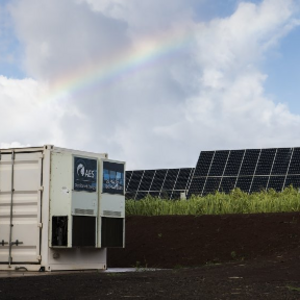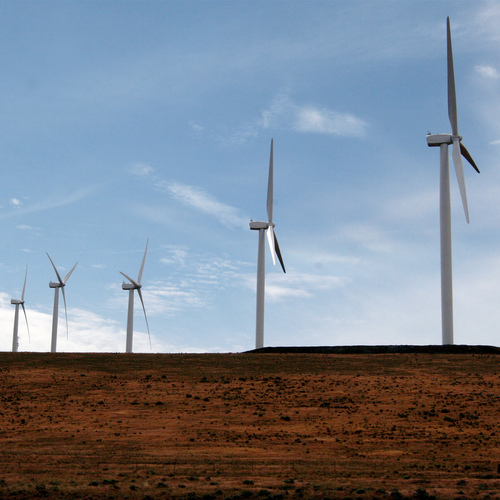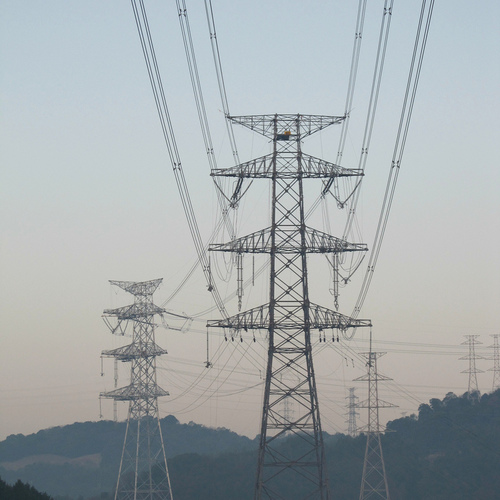
Image Credit: Forsaken Fotos via Flickr
A disagreement over prospects for an electric grid powered completely by renewable energy has morphed into a high-stakes legal dispute pitting a Stanford University professor against his critics.
The dispute has its origins in a widely quoted paper published by the National Academy of Sciences in 2015 by Mark Jacobson and three colleagues. They said the country could convert to energy derived exclusively from wind, solar and hydro in the continental U.S. between 2050 and 2055. The all-renewable energy future applied to all types of consumption — electricity, transportation, heating and cooling, and industry — and could be pulled off without the need for battery storage.
Their predictions picked up a lot of attention, including that of Christopher Clack, the CEO of Vibrant Clean Energy. Earlier this year, Clack and 20 coauthors published a critique of Jacobson’s original paper, also in the Proceedings of the the National Academy of Sciences.
Jacobson didn’t like what they had to say, and in a September 29 civil complaint filed in Washington, D.C., he accused Clack and his coauthors of publishing “false and misleading” information about his original paper, while complaining the National Academy of Sciences violated its own guidelines by publishing the rebuttal.
For the damage done to his reputation, and because the Clack paper made him and his coauthors look like “poor, sloppy incompetent and clueless researchers,” Jacobson wants the article retracted and both Clark and the National Academy of Sciences ordered to pony up at least $10 million each.
It’s all about hydro
At the heart of the dispute is the role hydro would play in an all-renewable grid. As explained in this report by Greentech Media last June, Jacobson’s energy model relied mostly on wind and solar. When those two sources weren’t enough to meet demand, the grid would fall back on hydro, to be used only “as a last resort.”
The problem is how much power the country’s hydro facilities would be capable of providing. Jacobson’s original paper shows the output of hydro peaking at more than 1,300 gigawatts, while supporting information in his study showed maximum output would be far less.
Clack and his coauthors said the discrepancy amounts to a modeling error that relied on “unsupported assumptions” while Jacobson says it’s an “intentional assumption,” not a mistake. He says the dramatically higher hydro output could be achieved by retrofitting existing dams with higher capacity turbines, and using hydroelectricity not for daily output but to meet peak demands a few times a year.
In his complaint, Jacobson details a series of exchanges with the National Academy of Sciences before the Clack critique was published in June. He defends his original research paper and claims Clack and his colleagues were making dozens of errors in their review. Further, Jacobson said publication of Clack’s work disregarded the Academy’s own publishing rules and should have been offered only as a much shorter letter.
The Academy ignored his complaints and published the article anyway, Jacobson says.
While Jacobson is fuming about his damaged reputation, Clack says the disagreement doesn’t belong in the courts.
“Our paper underwent very rigorous peer review, and two further extraordinary editorial reviews by the nation’s most prestigious academic journal, which considered Dr. Jacobson’s criticisms and found them to be without merit,” Clack said in a written statement sent to Greentech Media, The Washington Post and others. “It is unfortunate that Dr. Jacobson has now chosen to reargue his points in a court of law, rather than in the academic literature, where they belong.”
The lawsuit has touched off some lively exchanges on Twitter, which you can check out here.
Weekly Newsletter
Get building science and energy efficiency advice, plus special offers, in your inbox.















One Comment
I like the point about hydro
I like the point about hydro being a valuable battery replacement that should be used only when other renewable sources are unavailable.
The lack of accounting for carbon and other pollutants distorts the market.
Log in or create an account to post a comment.
Sign up Log in